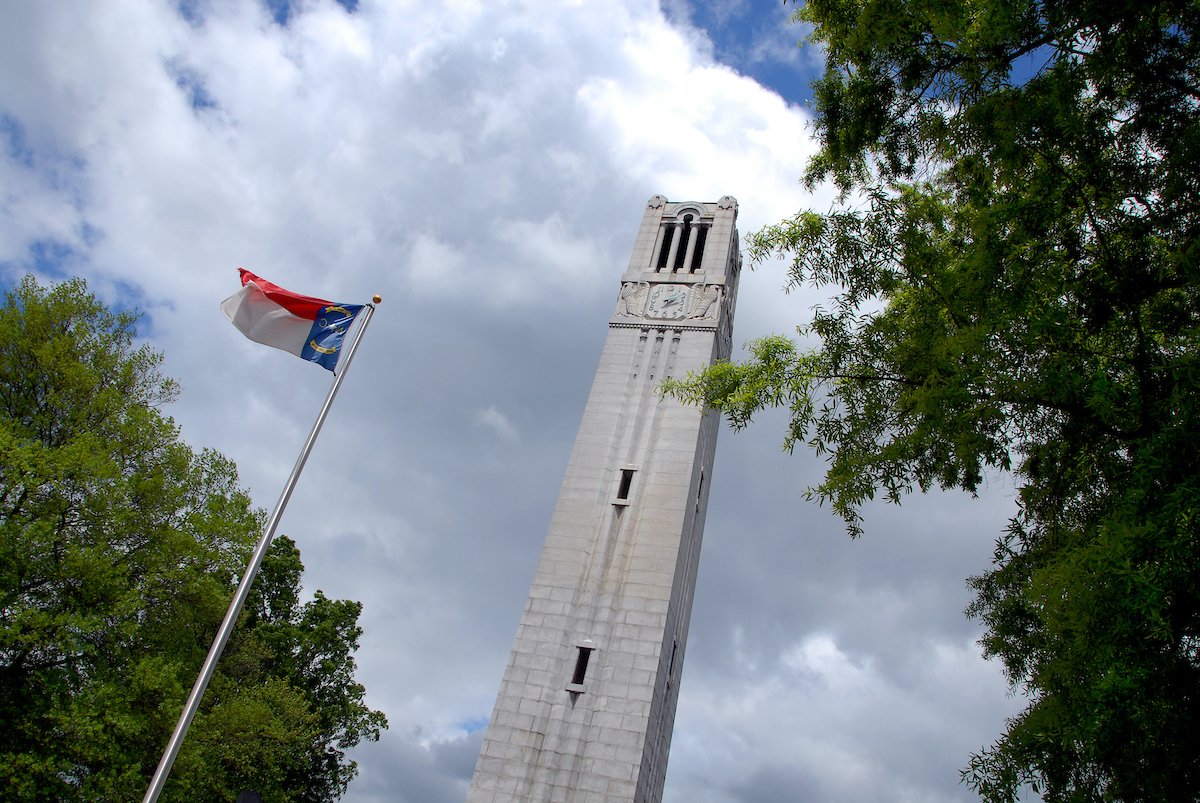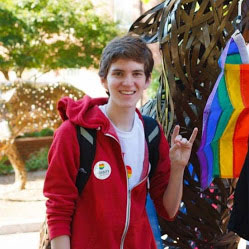
Belltower under cloudy skies.
 The Digest recently interviewed Mitchell Moravec, a junior double majoring in Psychology and Material Science and Engineering, to find out how he got involved in numerous activities in the areas of equity and diversity. Find out why he thinks it is important to get involved and why diversity programs are needed at NC State.
The Digest recently interviewed Mitchell Moravec, a junior double majoring in Psychology and Material Science and Engineering, to find out how he got involved in numerous activities in the areas of equity and diversity. Find out why he thinks it is important to get involved and why diversity programs are needed at NC State.
Q: How did you get involved with diversity efforts on campus?
I absolutely must point to my involvement with the University Scholars Program starting my first semester at State. The connections they made for me and the events I was able to go to with fellow Scholars made the experience of diving into diversity efforts easy and fun!
Q: What have been your activities to date in these areas?
Beyond attending events on campus, hearing speakers and joining in on some diversity discussions, I have bopped around. As a sophomore, I was an Office for Institutional Equity and Diversity (OIED) Cohort member and worked across the Women’s Center, GLBT Center and Multicultural Student Affairs. This opportunity opened up lots of doors and special chances to get involved with diversity education and outreach on campus. Outside of this, I have been able to participate in service trips to Chicago, Atlanta, Charleston and Alaska through CSLEPS’ ASB programs and West Campus Diversity Trips. This all culminated last year in receiving a nomination for the Chancellor’s Creating Community Award for Outstanding Student, an excellent opportunity to meet and interact with fellow student leaders of social justice on campus. I’m probably forgetting an activity or two, but they’ve all been incredibly impactful on my experience so far!
Q: Why do you feel diversity programs are important at NC State?
NC State is constantly challenged by miscommunication and lack of understanding, from the individual student level to the highest administration. Too often do we ignore this and focus on academic achievement or social engagement. However, much is lost in this devaluation of diversity programming. The programs centered around the core principles of diversity awareness and critical discussion bring cultural competence, community and student engagement, leadership building and communication skills. Diversity programming is our best chance for the survival of these high impact practices for student success.
Moravec has written previously for the Digest about his ASB Greensboro-Atlanta experience and his reflections on working in OIED.